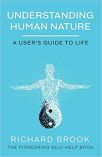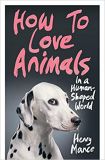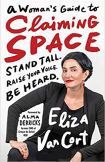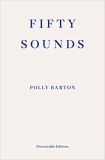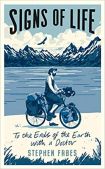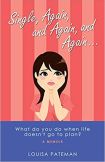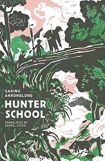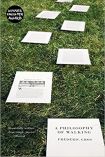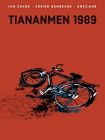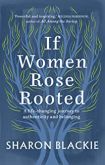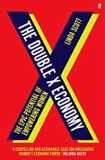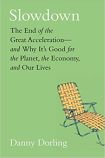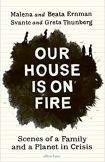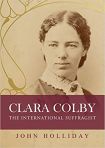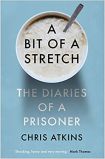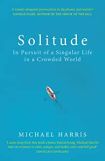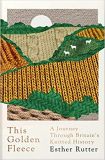Difference between revisions of "Newest Politics and Society Reviews"
| Line 2: | Line 2: | ||
[[Category:New Reviews|Politics and Society]]__NOTOC__ <!-- Remove --> | [[Category:New Reviews|Politics and Society]]__NOTOC__ <!-- Remove --> | ||
| − | |||
| − | |||
| − | |||
| − | |||
| − | |||
| − | |||
| − | |||
| − | |||
| − | |||
| − | |||
| − | |||
{{Frontpage | {{Frontpage | ||
|author=Richard Brook | |author=Richard Brook | ||
Revision as of 11:00, 29 June 2021
Review ofUnderstanding Human Nature: A User's Guide to Life by Richard BrookI am a firm believer that sometimes we choose books, and sometimes books choose us. In my case, this is one of the latter. Not so very long ago, if I had come across this book I'd have skimmed it, found some of it interesting, but it would not have 'hit home' in the way that it does now. I believe it came to me not just because I was likely to give it a favourable review [ full disclosure The Bookbag's u.s.p. is that people chose their own books rather than getting them randomly, so there is a predisposition towards expecting to like the book, even if it doesn't always turn out that way ] – but also because it is a book I needed to read, right now. Full Review |
Review ofHow to Love Animals in a Human-Shaped World by Henry ManceWhen we do think about animals, we break them down into species and groups: cows, dogs, foxes, elephants and so on. And we assign them places in society: cows go on plates, dogs on sofas, foxes in rubbish bins, elephants in zoos, and millions of wild animals stay out there, somewhere, hopefully on the next David Attenborough series. I was going to argue. I mean, cows are for cheese (I couldn't consider eating red meat...) and I much prefer my elephants in the wild but then I realised that I was quibbling for the sake of it. Essentially that quote sums up my attitude to animals - and I consider myself an animal lover. If I had to choose between the company of humans and the company of animals, I would probably choose the animals. I insisted that I read this book: no one was trying to stop me but I was initially reluctant. I eat cheese, eggs, chicken and fish and I needed to either do so without guilt or change my choices. I suspected that making the decision would not be comfortable. Full Review |
Review ofA Women's Guide to Claiming Space by Eliza Van CortShe brings a hug-kick-thunderclap that every woman needs in her life. Again and again and again. (Alma Derricks, former CMO, Cirque du Soleil RSD) To claim space is to live the life of choosing unapologetically and bravely. It is to live the life you've always wanted. Sometimes the reviewing gods are generous: at a time when violence against women is much in the news, A Women's Guide to Claiming Space by Eliza Van Cort dropped onto my desk. Now - to be clear - this book is not a 'how to disable your attacker with two simple jabs' manual: it's something far more effective, but discussion at the moment seems to be about how women can be protected. I've always thought that women need to rise above this, to be people who don't need protection, people who claim their own space. If all women did this, those few men who are violent to women would realise that we are not just an easy target to be used to prove that they are big men. Full Review |
Review ofFifty Sounds by Polly BartonWhere do I start? I could start with where Barton herself starts, with the question Why Japan? Japan has been on my radar for a while and if the world hadn't gone into melt-down I would have visited by now. I may get there later this year, but I am not hopeful. And like Barton, I don't know the answer to the question why Japan? She explains her feelings in respect of the question in the first essay, which is on the sound giro' – which she describes as being, among other things, the sound of every party where you have to introduce yourself. Full Review |
Review ofSigns of Life by Stephen FabesI was brought up on maps and first-person narratives of tales of far away places. I was birth-righted wanderlust and curiosity. Unfortunately, I didn't inherit what Dr. Stephen Fabes clearly had which was the guts to simply go out and do it. I also didn't inherit the kind of steady nerve, ability to talk to strangers and basic practicality that would have meant that I would have survived if I had been gifted with the requisite 'bottle'. In order words I'm not the sort of person who will get on a bike outside a London hospital and not come home for six years. Fabes did precisely that. Full Review |
Review ofSingle, Again, and Again, and Again by Louisa PatemanYou can't be happy and fulfilled on your own. You are not complete until you find a man. This was what Louisa Pateman was brought up to believe. It wasn't unkind: it was simply the adults in her life advising her as to what they thought would be best for her. It was reinforced by all those fairy tales where the girl (she's usually fairly young) is rescued by the handsome prince who then marries her so that they can live happily ever after. Few girls are lucky enough to be brought up without the expectation that they will marry and have children. It was a belief and it would be many years before Louisa would conclude that a belief is a choice. Full Review |
Review ofHunter School by Sakinu AhronglongThe flyleaf to this little collection tells us that it is a work of fiction. That's possibly misleading. I am not sure whether it is "fiction" in the sense that Ahronglong made it all up, or whether it is as the blurb goes on to say recollections, folklore and autobiographical stories. It feels like the latter. It feels like the stories he tells about his experiences as a child, as an adolescent, as an adult are real and true. But memory is a fickle thing, and maybe poetic licence has taken over here and there, and maybe calling it fiction means that its safer and therefore more people will read it. More people should. Full Review |
Review ofA Philosophy of Walking by Frederic GrosI confess I picked this one up from the library in my pre-lockdown forage of random stuff. Now I have to go out an buy my own copy so that I can turn down the pages I have marked and return to its varying wisdom when I need to. Some books draw you in slowly. This one had me in the first two pages, wherein Gros explains why walking is not a sport. Full Review |
Review ofTiananmen 1989: Our Shattered Hopes by Lun Zhang, Adrien Gombeaud, Ameziane and Edward Gauvin (translator)I never really followed the events of Tiananmen Square with much attention when it was playing out – someone in the second half of their teens has other priorities, you know. I certainly didn't know of the weeks of protests and hunger strikes from the students before the massacre and the birth of the Tank Man image, I didn't know how the area had long been a venue for political protest, and I didn't know more than a spit about the people involved on either side. This book is practically flawless in giving a general browser's context for the whole season of protests back in 1989. Full Review |
Review ofIf Women Rose Rooted by Sharon BlackieI normally say that you can tell how much a book means to me by how many pages have corners turned down. Perhaps an even greater measure of impact is setting out to buy my own copy before I've finished reading the one I've borrowed. I want to avoid clichés like 'powerful' 'inspiring' 'life-changing' – although it is definitely the first two and only time will tell about the third – but clichés exist for a reason and I'm not sure I can succinctly put it any better. Full Review |
Review ofThe Double X Economy by Linda ScottWomen are economically disadvantaged in every country in the world. It's a bold statement for an opening chapter, but it's far from hyperbole as the following pages explain. This book shines a light on what is happening in different places, and the impact on the local and world economy. What can be learnt from the great strides in gender-equalising legislation in the west? What can be done about the selling of young women into marriage, and what can chimpanzees and bonobos teach us about mothering? Full Review |
Review ofSlowdown by Danny DorlingWe are living in a time of rapid change, and we're worried about it. Dorling tells us that the latter is normal, natural and probably good for us. We are designed to worry and with the current state of what we're doing in the world we have much to be worried about. However, over the next three-hundred-and-some pages, if you can follow the arguments, it sets out in scientific detail why either we shouldn't be as worried as we are, or in some cases that we're worrying about the wrong things. Mostly. Because mostly, things are not changing as rapidly as we think they are. In fact, the rate of change in many things is slowing down and the direction of change will in some cases go into reverse. Full Review |
Review ofOur House is on Fire: Scenes of a Family and a Planet in Crisis by Malena Ernman, Greta Thunberg, Beata Thunberg and Svante ThunbergThe Ernman / Thunberg family seemed perfectly normal. Malena Ernman was an opera singer and Svante Thunberg took on most of the parenting of their two daughters. Then eleven-year-old Greta stopped eating and talking and her sister, Beata, then nine years old, struggled with what was happening. In such circumstances, it's natural to seek a solution close to home, but eventually, it became clear to the family that they were burned-out people on a burned-out planet. If they were to find a way to live happily again their solution would need to be radical. Full Review |
Review ofClara Colby: The International Suffragist by John HollidayThe path of Clara Dorothy Bewick's life was probably determined when her family emigrated to the USA. At the time she was just three-years-old but because of some childhood ailment, she wasn't allowed to sail with her parents and three brothers. Instead, she remained with her grandparents, who doted on her and saw that she received a good education, both in and out of school. She was the only child in the household and her childhood was glorious. By contrast, her family had become pioneer farmers in the mid-west of the United States and life was hard, as Clara was to find out when she and her grandparents eventually went to join the family. Clara would only know her mother for a few months: she was married for fifteen years, had ten pregnancies, seven surviving children and died in childbirth not long after Clara arrived. As the eldest girl, a heavy burden would fall on Clara and Wisconsin was a rude awakening. Full Review |
Review ofA Bit of a Stretch: The Diaries of a Prisoner by Chris AtkinsDocumentary filmmakers don't usually get the run of establishments within the Mountbatten-Windsor Hotel Group, but after getting involved in an illegal tax scheme to fund his latest film, Chris Atkins was invited for a five-year stay. The first nine months were spent in HMP Wandsworth, which is probably the oldest, largest and most dysfunctional prison in Europe. Full Review |
Review ofSolitude: In Pursuit of a Singular Life in a Crowded World by Michael HarrisThis is not the book I was expecting it to be. For some reason I expected it to be another self-help manual on how to find calm, how to step outside the mainstream, but it is not that at all. Instead of telling us how it is more about the why. Harries examines how we're eroding solitude, which used to be a natural part of our human life, and why that matters. Of course, he talks about how some people have found solitude and what has come of that, and eventually in the final chapter he talks about his own experience of having deliberately sought it out, but mostly he wanders down the alleys and by-ways that his thinking about this lost art led him. Full Review |
Review ofThis Golden Fleece: A Journey Through Britain's Knitted History by Esther RutterIt was December and Esther Rutter was stuck in her office job, writing to people she'd never met and preparing spreadsheets. The job frustrated her and even her knitting did not soothe her mind. January was going to be a time for making changes and she decided that she would travel the length and breadth of the British Isles with occasional forays abroad, discovering and telling the story of wool's history and how it had made and changed the landscape. She'd grown up on a sheep farm in Suffolk - a free-range child on the farm - and learned to spin, knit and weave from her mother and her mother's friend. This was in her blood. Full Review |
Move to Newest Popular Science Reviews
